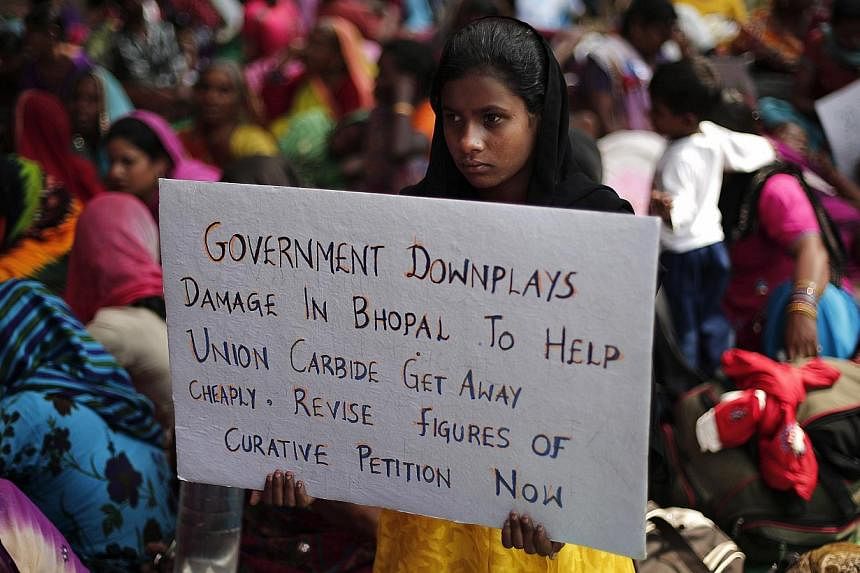NEW DELHI (AFP) - Victims of the Bhopal gas disaster, suffering deformities and illnesses, staged a hunger strike in the Indian capital Monday for increased compensation ahead of the 30th anniversary of the tragedy.
Holding signs that read "Justice for Bhopal", about 100 mainly women and children gathered at a protest site in New Delhi, including first and second generation victims of the world's worst industrial accident.
Bhopal activist Satinath Sarangi said a handful of the protesters would fast indefinitely in the hope of attracting Prime Minister Narendra Modi's attention to the plight of the victims of the 1984 disaster.
"We have come here with the hope that the present government led by Mr Modi will correct the wrongs done by the previous government and ensure gas victims are given extra compensation," he told the crowd.
Sarangi also urged Modi's right-wing government, which won power in May on a pledge to revive the economy, against overlooking any environmental crimes committed by companies in its quest to lure foreign investment.
Thousands of people were killed when 40 tonnes of lethal methyl isocyanate gas spewed from the Union Carbide chemical plant in the central city of Bhopal on December 2, 1984.
The disaster killed 8,000-10,000 people within the first three days, according to data from the state-run Indian Council of Medical Research, but hundreds of thousands more suffer the consequences.
"I remember people running from their homes to try and get away from the gas, children dead in the streets," said Premlata Chaudhary, 67, who lives in her ancestral village less than a kilometre from the plant.
"I remember covering my face and my children's, just grabbing them and running," said Chaudhary, who lost one of her six children in the disaster.
Chaudhary, who suffers from respiratory and stomach problems, said her 25,000 rupees (S$524) in compensation from the company was finalised 15 years after the disaster.
The protesters on Monday demanded the Modi government attempt to speed up legal action for greater compensation.
The Indian government in 2012 filed a petition in the Supreme Court asking for higher compensation from the company, which was initially set at US$470 million (S606 million) in a settlement reached in 1989.
US-based Dow Chemical, which bought Union Carbide after the disaster, insists that all of the company's liabilities were settled in the 1989 agreement.

